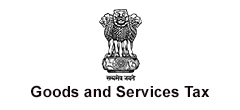
Conscience based Business Governance
By: Mr. Deepak Gupta - 13th June, 2019
In the modern world, business entities are the driving force of any economy and these entities have to continuously balance the interests of its various stakeholders including customers, investors, employees, suppliers, community and regulators.
Broadly, any business can be either be:
- Governed by conscience
- Governed by a mixture of greed and vanity
A business that is governed by conscience is considerate to the interests of all stake holders and strives for multidimensional win-win equilibrium.
There is a conscious effort to promote congruence of interests amongst its stakeholders and this gives impetus to innovation, if conventional ways cannot sustain the interest of all stakeholders.
The practitioners of conscience-based business governance create a sense of purpose and harmony amongst all participants and build long term sustainable business relationships.
We at MVA firmly subscribe to the view that "A Business that is governed by conscience, though small, is much better than any large business that is governed (misgoverned) by greed and vanity."
We are committed to foster this concept of 'Conscience based Business Governance' amongst all our clients and in our own way contribute to a better and conducive business environment.
Feel free to share your thoughts.
Thanks for your patient reading.
Disclaimer
The Blogs published in this website are for educational purposes only. It is meant to give you a general information and a general understanding of the topics discussed therein and not to provide you or any person any professional advice thereof. By using this website you understand that there is no professional relationship between you and Mundle Venkatraman and Associates (MVA) or with any of its partners, associates or employees. Any information available on this website should not be used as a substitute for competent professional advice.
Terms of UseRecent Blogs
Union Budget 2025 – A synopsis about the tax and compliance reforms
By: Priyanka Jain
6th February, 2025
Income Tax Clearance Certificate for travel outside India
27th August, 2024
By: Vidhi Vora
28th March, 2023
By: Mr. Prasanna Ravikant Bhat
7th February, 2023
Certificate in Form 10BE for Claiming Deduction u/s 80G
By: Mr. Prasanna Ravikant Bhat
27th May, 2022
Profession tax enrollment and registration - Applicability in Maharashtra State
By: Mr. Prasanna Ravikant Bhat
19th March, 2021
Foreign Contribution (Regulation) Amendment Act, 2020 ("FCRA 2020")
By: Nikita Theresa Noronha
16th December, 2020
Using file systems to enhance performance of Income Tax Business Application (ITBA)
17th December, 2019
Income Tax Compounding Fees - 276CC Offences - Nonfiling of returns
13th November, 2019
 American Institute of Certified Public Accountants
American Institute of Certified Public Accountants  Association of Chartered Certified Accountants
Association of Chartered Certified Accountants  Chartered Institute of Management Accountants
Chartered Institute of Management Accountants  Federal Reserve Board of USA
Federal Reserve Board of USA  Indian GST FAQs
Indian GST FAQs  Indian Income Tax
Indian Income Tax  Information System Audit and Control Association
Information System Audit and Control Association  Institute of Chartered Accountants of England and Wales
Institute of Chartered Accountants of England and Wales